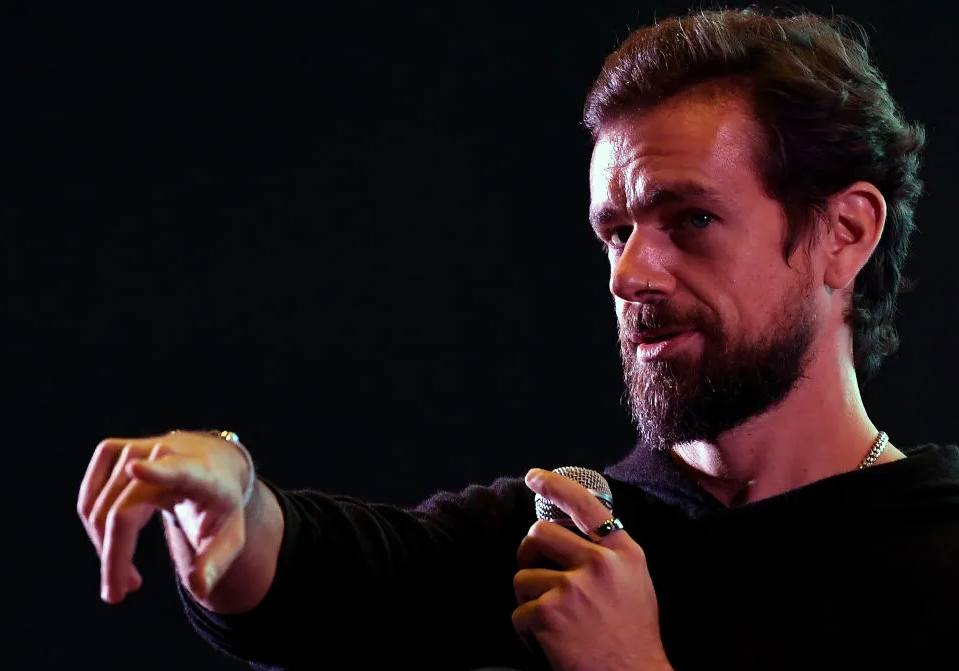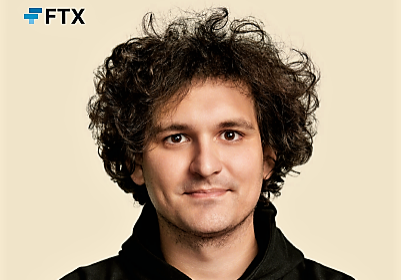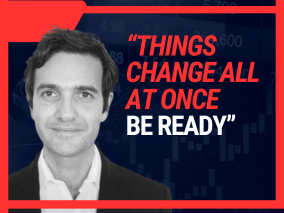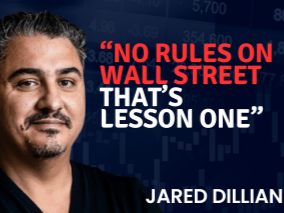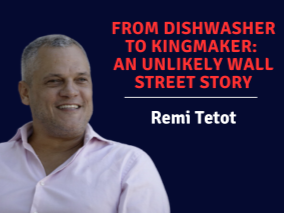Our brains evolved to tell stories before they evolved to speak.
This has fundamental implications for our susceptibility to communication in the networked age.

So that’s where we are in our local real estate market – low demand, low supply, high price expectations – and my sense is that this is where we are in lots of markets … not just CT residential real estate. Maybe it’s just the summer doldrums, I dunno. Maybe I’m just taking my local experience as more meaningful than it is. I’d be really interested to hear if anyone is seeing or experiencing the same, either in RE or anywhere else.
Because this is how stagflation happens.
Seasonality is so tough to parse, especially against pandemic-affected seasonality, but it sure seems like inventory got legitimately bought down in Q4/Q1, after which brokers sold that experience and y-o-y % changes to drive a corresponding increase in supply.

Also no idea wtf is going on in multi-family / condo land around here, but definitely seems distinct from the single-family experience.

— Ben Hunt | July 28, 2021|
Epsilon Theory may have gotten its formal start in 2013, but the soft launch took place in 1991. That’s when my partner Ben finished his doctoral work at <lifts nose slightly> a school up in Cambridge. His work there (and his 1997 book, Getting to War) focused on how news could be used to predict the likelihood of war. It also analyzed how news was used by institutions and individuals to foment an appetite for and belief in the necessity of war, which is related to but not the same as the ability to use that news for predictions.
So yes, we were interested to read about Project Cassandra, a collaboration between German academics and military leaders to quantify the risk of conflicts using…literature. The Guardian covers it here in what I think is a very worthwhile read.

The project is really interesting. It confirms, or at least shares, many of the core principles of our Narrative Machine project. Not least among them is the recognition that oft-mined sentiment possesses a fraction of the influence of memes with subjective power that can only be identified objectively through words and phrases of meaning. Or the observation of identifiable, recurring story archetypes.
Leaving aside that we focus on different universes of creative output, our projects DO differ in one respect. The Cassandra Project appears to place great emphasis on the ability to quantify the popular and critical acclaim of a fictional literary work. For example, more popular, more viral, more well-regarded work would have different influence, which is a perfectly sensible hypothesis.
Because we focus on a larger and more frequent dataset of news, blogs, press releases and transcripts, we get to do two different things: first, instead of estimating how much of an audience has heard an idea and how much that idea has changed their minds, we can more easily observe how much a specific memetic idea has reproduced within the dataset over time.
Second, because our dataset includes items which are nominally news / non-fiction content, we can observe the extent to which explicit and implicit opinion language is being deployed, which also provides a window into the narrative-shaping efforts of Common Knowledge missionaries.
Two different approaches to a similar problem. I prefer ours, because I feel more confident saying that an idea has reproductive legs by observing how it changes the language other people use to discuss it, and because knowing some of the intentions of powerful institutions and influential individuals is an indispensable part of any effort to quantify the potential effects of narrative.
But there are absolutely features of the zeitgeist which will only manifest in the arts, in literature, and in the groanings and yearnings of those who make the songs. For that reason alone, we think the Germans have the right of it here in the way that the Scots did before. It’s a very cool project.
Let me make the songs of a nation, and I care not who makes its laws.
Andrew Fletcher, Commissioner of the Old Parliament of Scotland (1703)
— Rusty Guinn | July 8, 2021 | 12:32 pm
The politicization of inflation into a partisan “There Is No Inflation!” TM Narrative by the nudgers and mandarins on the left is really depressing.

The politicization of inflation into a partisan “Biden Inflation!” TM narrative by the clowns and raccoons on the right is really depressing.
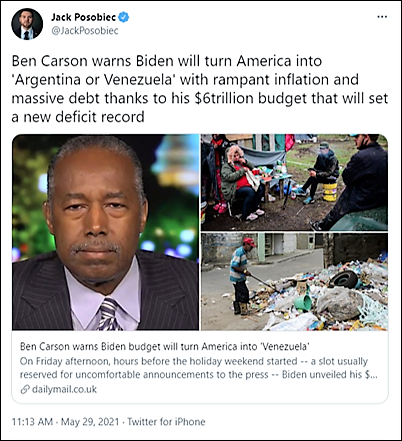
It’s really depressing because it makes it impossible for me to say anything on inflation without getting lumped into an insane partisan box. It’s an entirely constructed and false framing of the issue, and I’m just so freakin’ weary of it.
We call this political auto-tuning. We call this a political shock collar.
It’s the go-to move of incumbents in a two-party system with high-peaked bimodal electorate preferences. THIS is why there are no successful centrist politicians. THIS is why there are no stable centrist policies. THIS is why we can’t have nice things.
THIS is why I believe that top-down societal change is impossible, but instead must emerge from the bottom-up through an authentic social movement of Make/Protect/Teach.
Watch from a distance if you like, but when you’re ready … join us.
— Ben Hunt | July 2, 2021 | 11:09 am
We make it no secret that our research program here is all about using natural language processing to identify and measure narratives in the world. But is Narrative truly only shaped by verbal and written communication? Do Missionary statements have to be made with the mouth?
Of course not.
Here’s narrative missionary Max Scherzer, pitcher for the Washington Nationals, providing an exaggerated form of protest against the revised MLB enforcement policy regarding the use of foreign substances. The umps have generally been inspecting hats gloves and belts for these substances. Max decided to give them a little, shall we say, extra on the belt removal.

Here’s Oakland Athletics pitcher Sergio Romo, picking up every nuance of Scherzer’s crystal clear communication to the commissioner’s office.

Scherzer and Sergio’s sticky substance strip show is memetic perfection in the form of malicious compliance. There is no press conference speech either pitcher – or the others who will no doubt mimic their displays in the coming days – could have made that would have more clearly shifted Common Knowledge to the belief that the foreign substances rule was being applied, interpreted and policed in an absurd, preposterous way.
Bold prediction: this narrative doesn’t peak until Joe West enrages Zach Greinke into an NC-17 display on national television.
— Rusty Guinn | June 23, 2021 | 9:21 pm
The average American news consumer is exposed to far more headline text on news websites, social media apps and content aggregation sites than they are to the prose of the articles themselves. It should be no surprise, then, that more Fiat News and Missionary behavior exists in headlines than almost anywhere else. It typically gets a pass because, well, the whole job of a headline writer is to summarize what an article is about. But that’s precisely the task that lends itself so perfectly to telling us how we should think about the article. What’s important? What should our conclusions be? How should we feel about it?
I’ll give a free subscription to our free newsletter if you can find the fiat news language in this gem of a headline to a CNN news article.
Here are the companies rushing workers back to the office — and the ones that aren’t [CNN]
Aside from the general observation to take care in our content consumption habits, remember that it is the constant barrage of articles – and headlines – like this that reinforces our belief that the missionaries of the “Work From Home Forever!” narratives are dominating the field, at least in the Narrative war.
— Rusty Guinn | June 22, 2021 | 9:58 am
The cure for the cancer of gun culture and police culture is not to be found in reform laws around guns and police, but in reform ideas around culture, ideas that create a new dimension of American society that rejects LARPing and LARPers alike.
Inflation
What made Bitcoin special is nearly lost, and what remains is a false and constructed narrative that exists in service to Wall Street and Washington rather than in resistance.
The Bitcoin narrative must be renewed. And that will change everything.
Sorry, we couldn't find any posts. Please try a different search.
Crypto
Recent Notes
Chapter 5: The Axe that Never Was
Our brains evolved to tell stories before they evolved to speak.
This has fundamental implications for our susceptibility to communication in the networked age.
Chapter 4: Out of Eden
If we care about the influence of social networks on our minds, why are we talking about bipedalism and the 8 million year cycle of co-evolution it kicked off?
Because it defined how our young were parented, how we taught them, and what they were exposed to. Because it changed how our symbolic brains evolved.
Intentional Investor #19: Yuri Khodjamirian
Join host Matt Zeigler as he interviews Yuri Khodjamirian, Chief Investment Officer at Tema ETFs, in this captivating episode of The Intentional Investor. From his early years during the collapse of the Soviet Union to building innovative investment products today, Yuri shares his remarkable journey through the world of finance and entrepreneurship.
Chapter 3: Caliban’s Garden
Man’s road to becoming a storyteller began with a single step.
That step kicked off millions of years of co-evolution of the human brain, society, language – and our relationship with story.
Chapter 2: What is Story?
There are a lot of ways to define a “story.”
But to understand how story interacts with human consciousness requires us to be more specific.
Intentional Investor #18: Jason Buck
In this fascinating conversation, Matt Zeigler sits down with Jason Buck, co-founder of Mutiny Fund, to explore the unexpected intersections between entrepreneurship, risk management, and personal development. From selling mixtapes in rural Michigan to developing real estate in Charleston and ultimately founding an innovative investment firm, Jason’s journey challenges conventional wisdom about success and risk-taking.
Chapter 1: Overhearing Ourselves
Shakespeare invented the human by inventing a device which spoke the language of consciousness:
Story.
Introduction: David Bowie’s Alien
David Bowie was right.
Social networks aren’t a tool. They are an alien force that transforms human consciousness.
Making Sense of Markets in a Post Election World | Grant Williams and Ben Hunt
Matt Zeigler is joined by Ben Hunt and Grant Williams for a candid discussion of the 2024 post-election landscape and its implications for markets. The guests explore how trust, or lack thereof, shapes both political and market narratives, examining the transformation of capital markets into what they describe as a “political utility” where “number go up” has become the prevailing faith.
I Think Representative Democracy is a Good Idea and We Should Give It a Try
I am 60 years old.
I am a (very) patriotic American.
I have never felt represented by any elected official.
Never.
Cursed Knowledge #30: The Road to Hell
The road to hell is paved with good intentions. But how often does that actually happen? Why do good intentions go so wrong? And what makes it so difficult to course correct? Those are the questions explored by Harper Hunt and Rusty Guinn in this episode of Cursed Knowledge.
Intentional Investor #17: Jared Dillian
In this episode of The Intentional Investor, host Matt Zeigler sits down with Jared Dillian – former Lehman Brothers trader, acclaimed newsletter writer, and author – for a captivating conversation about the unexpected paths that shape a life’s work. From his early days as a Coast Guard officer to becoming a Wall Street trader, and ultimately finding his voice as a writer, Dillian shares candid insights about his journey.
Walking Phnom Penh
Phnom Penh is a young city chock full of kids. They are everywhere, and they bring a positive energy, warmth, and joy that no amount of adult diversions — no amount of bars, casinos, exceptional cuisine, and museums — can replicate, because nothing warms the heart like a big smile from a tiny face.
I, Nazgûl
Being clear-eyed and full-hearted doesn’t mean being passive, weak, or silent.
It means resisting every effort to supplant our autonomy of mind with symbols of identity, no matter the source.
Intentional Investor #16: Remi Tetot
Join host Matt Ziegler as he sits down with Remy Tetot, the mind behind The Mad King newsletter and former co-founder of Real Vision, for a fascinating journey through the intersection of technology, finance, and personal growth. From washing dishes in Spain to revolutionizing financial media with Real Vision, Remy shares his remarkable story of constant reinvention. Learn how he transformed from a self-taught coder into a macro analyst under Raoul Pal’s mentorship, helped build Real Vision from the ground up, and navigated both spectacular successes and humbling failures in the crypto markets.
Apocalypse Always
Extreme language during election season isn’t anything new.
But this time it really is different. Our response must be different, too.
The Open Window
Creating two tightly bounded political extremes is NOT opening the Overton Window.
It just adds a second, equally closed window behind which all of our worst ideas can and will fester.
Remembering the Face of Your Father
For the past 28 years, since the death of my father, I’ve been hearing a steady tick-tock in my head.
How do we tell our stories to our children and our children’s children before it’s too late? Before we pass as all humans must pass?
Generative AI is a communion machine.
Intentional Investor #15: Brent Donnelly
In this episode of The Intentional Investor, host Matt Zeigler interviews Brent Donnelly, a veteran forex trader, financial writer, and mentor. Brent shares his fascinating journey from aspiring journalist to Wall Street trader, and how he eventually combined his love for writing and finance.
Cursed Knowledge #29: Allergies
Allergies. We either have them or know some one who does. Ranging from life threatening to mildly irritating, they’re one of life’s constant annoyances. And they’re getting worse. We have more allergies now than ever before. Rusty Guinn joins Cursed Knowledge to talk about why allergies are more common, and if there’s anything we can do about it.


























